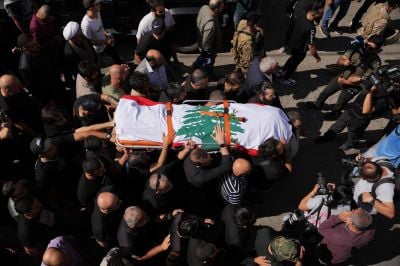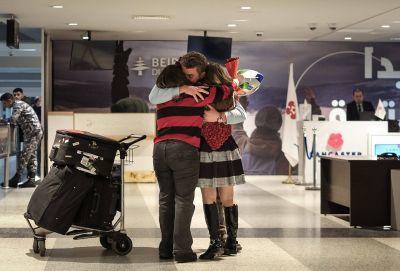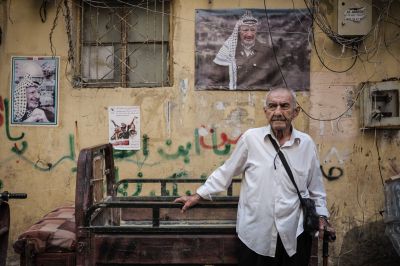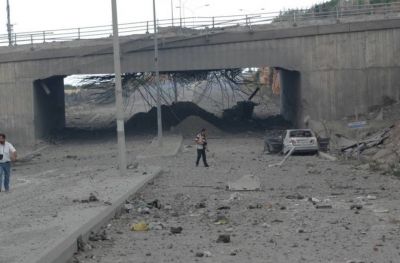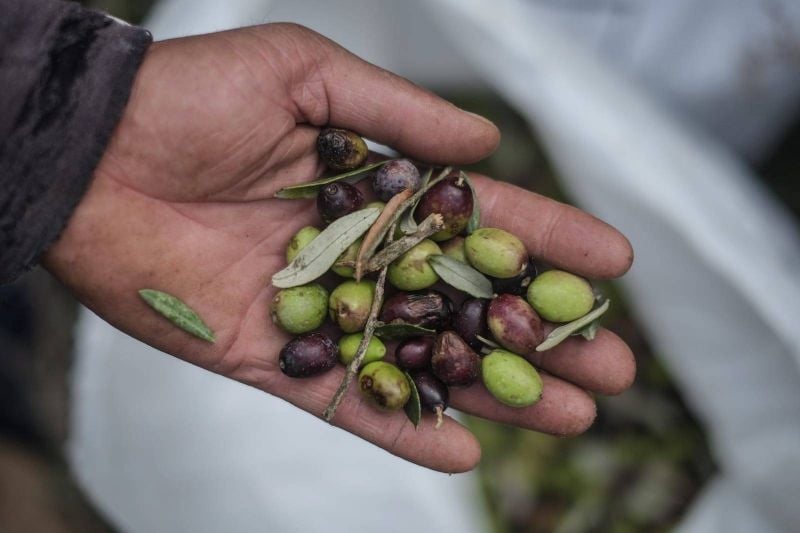
A man harvests olives in Lebanon in November 2022. (Credit: João Sousa/L'Orient Today/Illustrative photo)
BEIRUT — As the autumn rains begin and olive harvest season settles in, farmers say they fear losing this year’s harvest due to the intensifying Israeli airstrikes and artillery fire along Lebanon’s southern border villages.
Among these farmers are residents who have fled altogether, out of fear for their own safety.
Residents of Dhayra, a village that was bombed on the second day of the Hamas-Israel war, fled to shelter centers in nearby Sour or to relatives’ houses further north in Saida.
“Out of 30 families permanently living in the village, only 20 persons remain,” Dhayra mayor Abdullah Ghorayeb tells L’Orient Today. According to Ghorayeb, the livelihoods of village residents are heavily dependent on the annual olive harvest.
Dhayra and the surrounding border villages were already suffering the effects of Lebanon’s economic crisis, which saw thousands of people’s life savings liquidated in banks. The recent tensions along the border have only added to their worries, yet many hope for a cease-fire so they can safely return to tend to homes and harvest their olives.
Dhayra and other villages have been under Israeli fire since Oct. 8, when Al Quds brigade fighters from Lebanon attempted to infiltrate an Israeli military site near the village of Arab Al Aramcha. The Israeli army responded by shelling Hezbollah sites, leading to intensified clashes across Lebanon’s southern border.
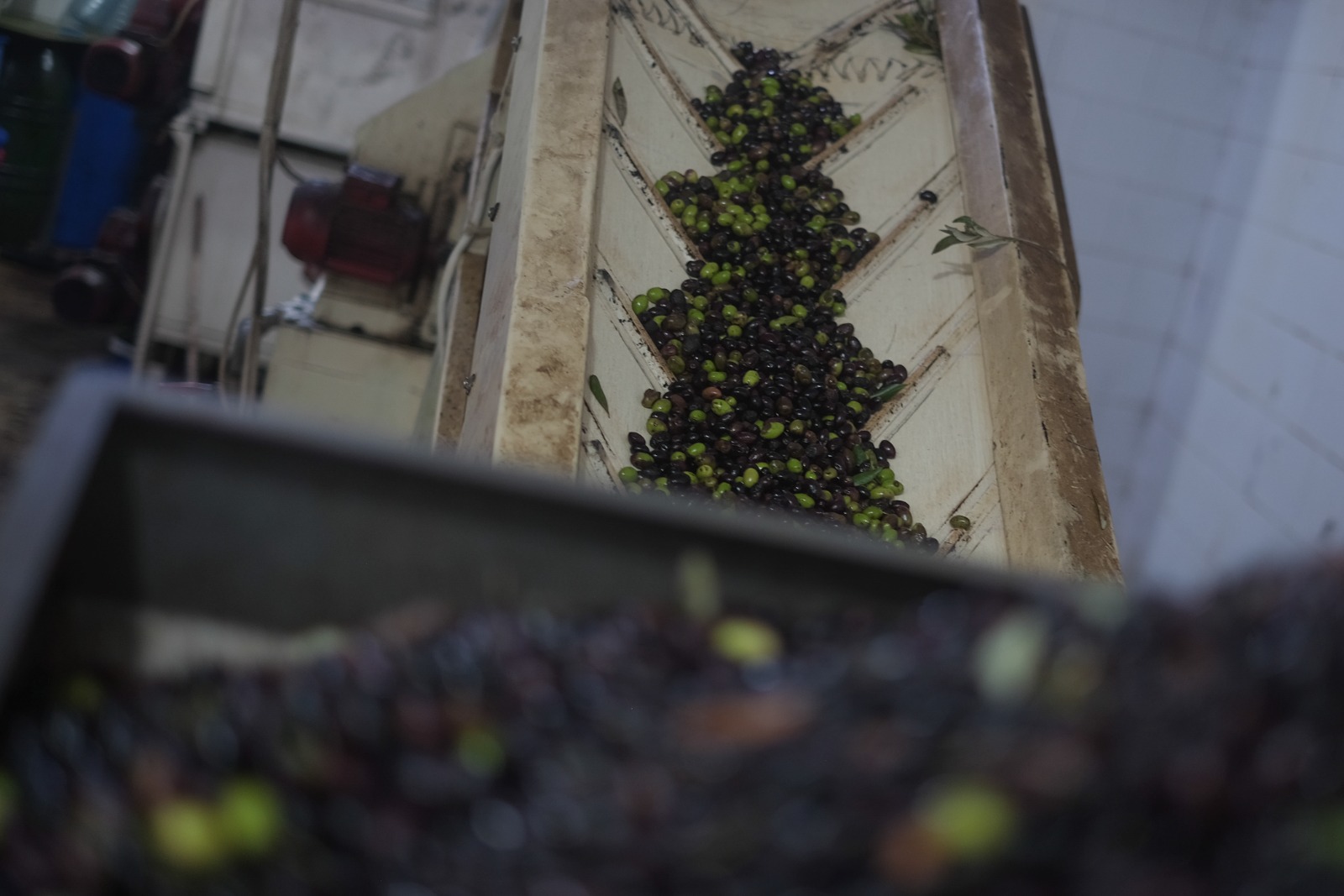 An olive press during harvest season in Lebanon in November 2022. (Credit: João Sousa/L'Orient Today/Illustrative photo)
An olive press during harvest season in Lebanon in November 2022. (Credit: João Sousa/L'Orient Today/Illustrative photo)
“We know that the bombing has burnt some farms, but considering the security situation, we are not able to count the losses,” Ghorayeb says. There are also unknown numbers of unexploded shells in farmland on the outskirts of local villages, as well as among residents’ homes, he says.
The burned olive groves would cost approximately six seasons worth of crops, he says, since the trees need years to revive and reach maturity.
“The Israeli bombing burnt my olive and pine farm,” says Walid Abu Samra, a Dhayra native with land along the border. Though he no longer lives in the village permanently, his parents still live in the area. They informed him that his trees had been burned.
He says he can’t yet ascertain the number of trees lost to the bombing. “Even the paramedics couldn’t enter the area to pull out [Hezbollah] fighters’ bodies. Why would we risk our lives?” he adds.
Abu Samra’s family accepted the“season loss,” and decided against harvesting their olives this year.
‘We will not leave our land and livelihood’
Sanaa Abu Dallah fled the border village Yarine on Oct. 8 with her daughter and husband and is now staying with family members in Saida. They are waiting to see how the situation will unfold.
“We have 200 trees that we want to harvest if the bombing stops soon,” says Abu Dallah. Her family relies on the olives and olive oil they prepare for their own consumption and they usually sell the surplus to cover the costs of maintaining their groves.
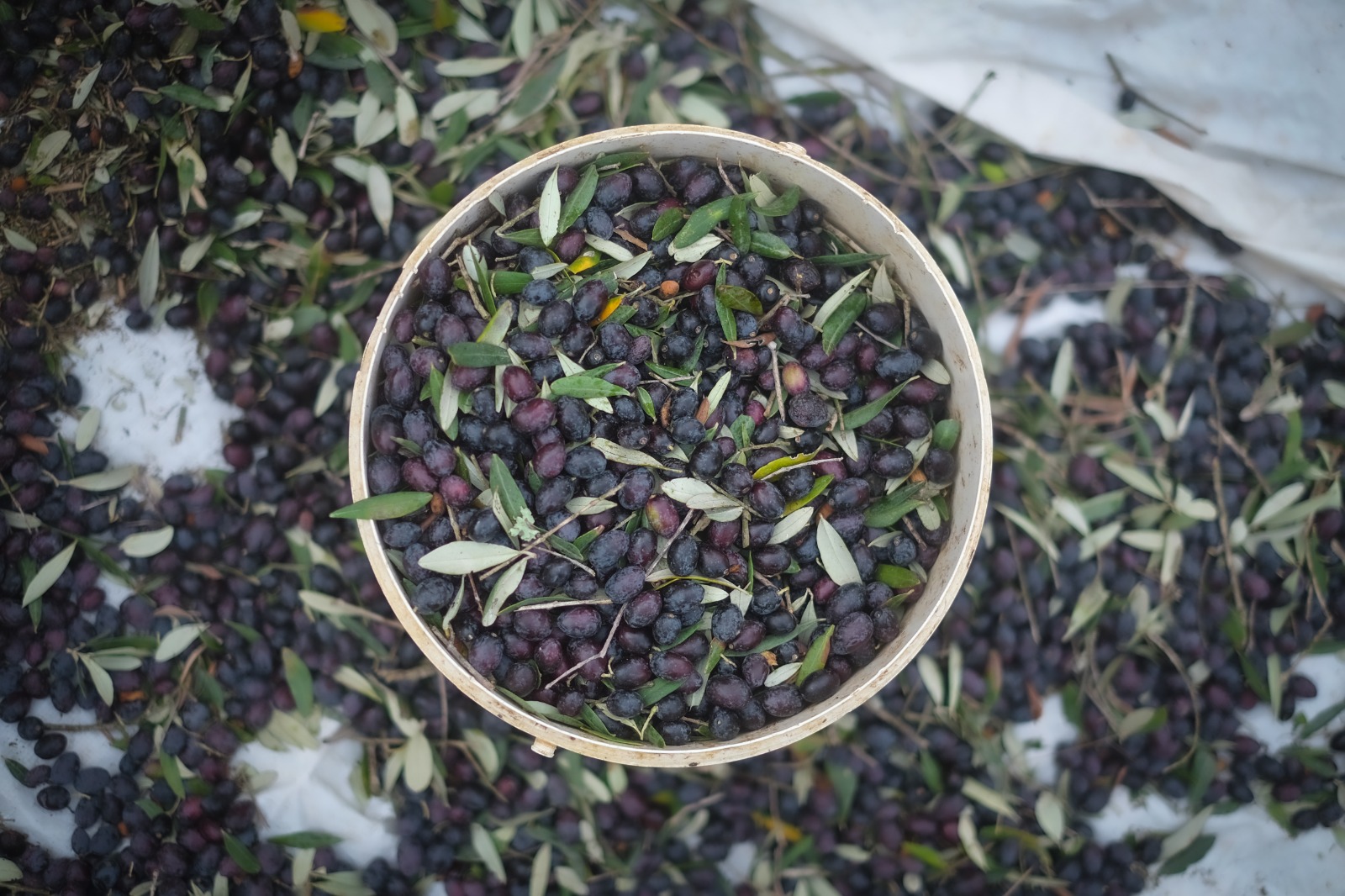 Olives during the harvest season in Lebanon in November 2022. (Credit: João Sousa/L'Orient Today/Illustrative photo)
Olives during the harvest season in Lebanon in November 2022. (Credit: João Sousa/L'Orient Today/Illustrative photo)
“The season this year is not as good as last year. But we will not leave our land and livelihood if we could go back home soon,” Abu Dallah added.
Similarly, Fadi Abu Dalla (no relation to Sanaa) from Zalloutieh is monitoring the situation in hopes of harvesting his olives this year. But, he says, “if we wait another week, we will lose the season,” since the olives will soon wither.
A father of four, Fadi said that half of his family’s income depends on olive production. He doesn’t know if his grove was burned by the bombing in the area and is still waiting for information from the Lebanese army about whether it has removed the unexploded shells from his land. He hopes for a ceasefire along the southern border.
Could white phosphorus bombs harm this year’s crops?
Adding to their concerns are reports of Israeli forces firing internationally banned white phosphorus bombs on Lebanese border villages.
In a statement published on Oct. 17, Human Rights Watch said that they “reviewed two videos from October 10 from two locations near the Israel-Lebanon border. Each shows 155mm white phosphorus artillery projectiles being used, apparently as smokescreens.”
The international organization stressed that white phosphorus “has a significant incendiary effect that can severely burn people and set structures, fields, and other civilian objects in the vicinity on fire.”
Fadi says he is uncertain about the impact of the white phosphorus on his groves and that he and other farmers haven’t received any information on the issue.
Charbel Afif, Head of the Chemistry Department at Saint Joseph University of Beirut (USJ), says that “if there is no powder residues on the trees and soil, we can say that there is no major impact on the crops.”
White phosphorus could still react on surfaces for up to 14 days, Afif adds. He warns that when it rains there is a high possibility of the remaining white phosphorus powder seeping into the groundwater. This could increase water toxicity and lengthen the potential impacts of the chemical.
“According to the analysis of the white phosphorus impact in other areas, like Gaza for example, experts found that it had a more dangerous effect on the aquatic environment,” Afif says, warning farmers of the risk of using contaminated water for their crops.
“Of course, we are afraid of the white phosphorus, this is why we left in the first place,” Abu Dallah says of the bombs.
Meanwhile, Abu Samra accuses the Israeli army of deliberately using the internationally banned weapon to poison the soil and deprive the farmers of planting their farms.
Abu Dallah says it was “hard” for her family to breathe when Israeli forces bombed their area on Sunday, Oct. 8. Having lived through multiple wars, she is aware that white phosphorus causes dangerous burns.
Still, Abu Dallah insists on harvesting her olives if the shelling stops soon. “We can’t leave our farms.”
